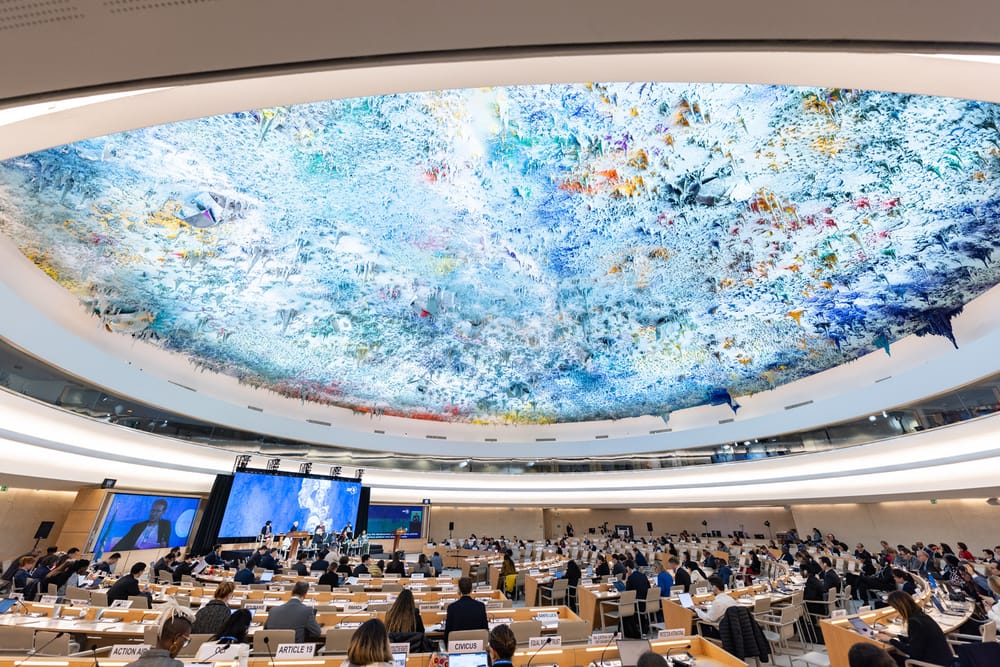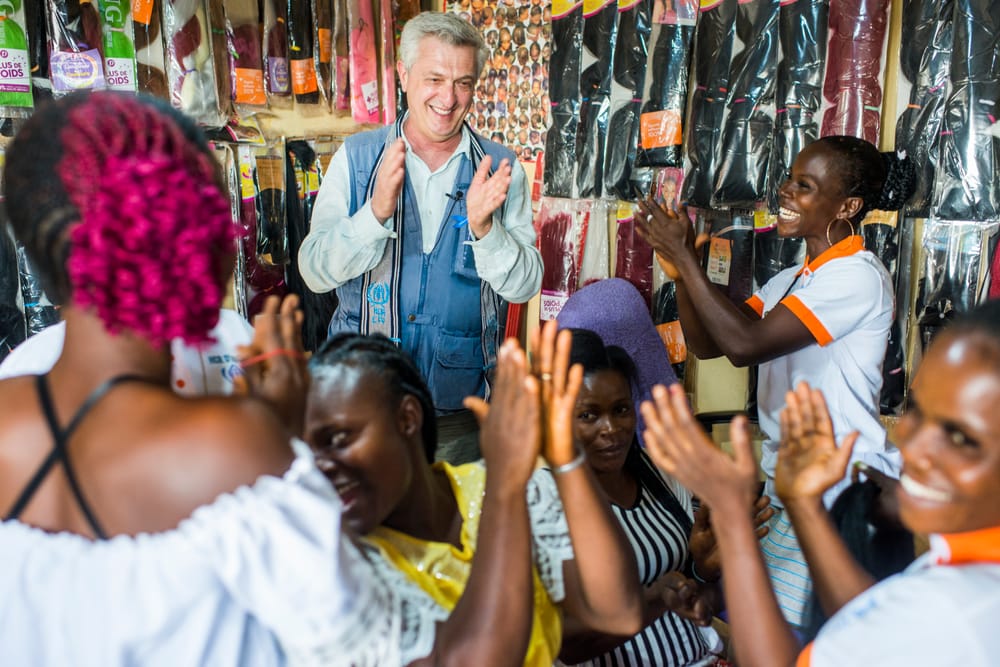By Jamil Chade
On 22nd August 2023, presidents and top diplomats from the five countries of the BRICS grouping – Brazil, Russia, India China and South Africa – held a so-called “Retreat” in Johannesburg - which had the potential to change the course of global governance for the future. Xi Jinping, Narendra Modi, Luiz Inácio Lula da Silva, Cyril Ramaphosa, and Vladimir Putin (the latter present via video) had a sense that their meeting was historic. The issue was straightforward: The world had changed and the ‘Global South’ was now a reality. What would they want the BRICS grouping to become in the future? Who and how many new members should be allowed, if any?
The world had changed and the ‘Global South’ was now a reality. What would they want the BRICS grouping to become in the future?
BRICS expansion
In 2010, the bloc accepted South Africa as the 5th member. But this time in 2023, delegations knew that the expansion was not going to be a simple enlargement by one new member. It would bring into the grouping a large number of countries that would affect the strategic meaning and operational logic of the bloc. Argentina’s recent withdrawal from the BRICS enlargement group also shows how ideologies can shape country preferences for or against the BRICS.
The debate on the expansion of the BRICS was primarily driven by China, especially after Covid-19. India and Brazil, however, were not fully behind the idea because they feared the alliance would become a Chinese foreign policy instrument and that their influence would be weakened. Yet, as of early 2023, the pressure from Beijing on other BRICS partners to include new members had increased significantly.
The “Retreat” was the key moment to resolve differences. If a regional balance between new members could be struck, Brazil would be willing to accept five names proposed by China. The idea was to bring in members already part of the G20, including Argentina, Egypt, Saudi Arabia and Indonesia. However, Jakarta withdrew its candidacy and this opened the space for Iran. To ensure a geopolitical balance, the United Arab Emirates was invited and, in order to enlarge the presence of the African continent, Ethiopia was also invited.
But for South Africa, India and Brazil, the deal also had to include a commitment to enlarge the UN Security Council. Thus far, Beijing was not in favour of this reform, given its intentions to block the entry of its two main regional rivals: India and Japan. In order to have a BRICS alliance that would suit its objectives, China agreed to include in the final declaration that it recognised the “legitimate aspirations” of South Africa, India and Brazil for a permanent seat at the UN Security Council. With these words, China had taken the first step towards recognising the accession of new members to the UN's highest body. "The giant has moved", celebrated one diplomat on the margins of the BRICS Summit in Johannesburg. By linking the expansion of the BRICS with the expansion of the UN Security Council, the negotiators of India, South Africa and Brazil achieved a major diplomatic breakthrough. It was the first salvo in the coming fight over the enlargement of the UN Security Council.
Breaking the dominance of the US Dollar
The BRICS enlargement, however, was only one element to consolidate the alliance as a key rival to the G7. Another element was the forging of a coalition to transform the global financial system. During the Summit, governments decided to mandate a study to establish a reference unit between the bloc's five currencies. The aim was to explore the policy space to create a currency that allows trade to take place without using the US dollar. In the future, this would reduce the dependency on the US dollar and limit the impact of its weaponisation. According to Brazilian Paulo Nogueira Batista Jr, a leading Brazilian economist the dollar has often been weaponised by "… the Western financial system to target hostile countries''. Russia is a case in point. The US and its European allies have frozen “approximately half of Russia's net international assets," or 300 billion dollars, he noted. "Evidently, the use and abuse of the dollar's privileged position leads to a loss of legitimacy of the current international monetary system. This has caused an erosion of confidence in the dollar," he argued.
By offering a road map to the creation of a joint BRICS currency, the Brazilian economist explained that it would begin as a basket of the five currencies. The weights of the five currencies would roughly reflect the relative weights of the five BRICS economies. "The aim would not be to create a single currency to replace the five national currencies, but to avoid the dollar when trading amongst the members of the bloc" he clarified.
Implications for International Geneva
BRICS can no longer wait to construct a global governance order that is more closely aligned with their interests; and they surely do not require permission from the Western world to move forward.
If the BRICS Summit of Johannesburg showed one thing, it is that the BRICS can no longer wait to construct a global governance order that is more closely aligned with their interests; and they surely do not require permission from the Western world to move forward. The prospect for 2024 and beyond is that an enlarged BRICS alliance will also coalesce in shaping policy discussions in several UN fora.
This may have significant implications in several issues areas covered in Geneva, including alliances to be established at the Human Rights Council, ILO, as well as a common position during the negotiations on the United Nations Framework Convention on Climate Change (UNFCCC) and its Paris Agreement.
In global health, for instance, the alliance will insist on the need to boost the transfer of technology and access to medicines in major negotiations at the World Health Organisation. The Pandemic Treaty, being discussed and with a deadline of 2024, is being considered as a test. In fact, for the last couple of years, BRICS health ministers have used the World Health Assembly to meet and coordinate positions. Now, it is expected to make its voice heard and to become a key player in some of these debates.
In trade, a push for a reform of the WTO is also expected from the BRICS. In its last Summit, the alliance reaffirmed “the support for the open, transparent, fair, predictable, inclusive, equitable, non-discriminatory and rules-based multilateral trading system with the World Trade Organisation (WTO) at its core”. They added, “We commit to engage constructively to pursue the necessary WTO reform (…) and call for the restoration of a fully and well-functioning two-tier binding WTO dispute settlement system accessible to all members by 2024, and the selection of new Appellate Body Members without further delay”.
The Disarmament Conference is yet another area that may feel the impact of the new BRICS. As stated by the group last August, treaties such as the Convention on the Prohibition of the Development, Production, and Stockpiling of Bacteriological and Toxin Weapons and on their Destruction (BTWC) and the Convention on the Prohibition of the Development, Production, Stockpiling and Use of Chemical Weapons and Their Destruction (CWC) are part of its focus.
“We reassert our support for ensuring the long-term sustainability of outer space activities and prevention of an arms race in outer space (PAROS) and of its weaponisation, including through negotiations to adopt a relevant legally binding multilateral instrument”, the BRICS summit declared.
Is Geneva, and the institutions headquartered there, ready to embrace a greater diversity of positions that is more reflective of the ‘non-Western world’?
In light of these developments, Geneva as a global hub, will have to ask itself some serious questions. Is Geneva, and the institutions headquartered there, ready to embrace a greater diversity of positions that is more reflective of the ‘non-Western world’? Can it broker or facilitate alignment and adherence to a broader set of universal principles such as the UN Charter, the Geneva Convention, and the Universal Declaration of Human Rights and the Sustainable Development Goals? How should it connect to the new institutional manifestation of the BRICS – prominently the BRICS Bank – to shape progress on global commons challenges? Finding answers to these questions will be important for Geneva to remain a relevant global hub in an era that is likely to be shaped by Eastern and Southern interests.
About the author
Jamil Chade is an award-winning Brazilian journalist, commentator, and writer who has been a correspondent in Europe for two decades with his office at the UN headquarters, in Geneva.
The opinions expressed in this publication are those of the authors. They do not purport to reflect the opinions or views of the Geneva Policy Outlook or its partner organisations.





